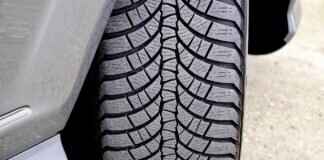This article delves into Emma Stone’s portrayal of Gwen Stacy in the Spider-Man franchise, highlighting her character development, the impact on the storyline, and the actress’s captivating performance that resonated with audiences worldwide.
Emma Stone’s rendition of Gwen Stacy is remarkable for its unique blend of vulnerability and strength. This refreshing take redefines the traditional image of female characters within the superhero genre, showcasing Gwen as a multifaceted individual rather than just a love interest.
To authentically embody Gwen Stacy, Stone engaged in extensive character research. This preparation included:
- Character Research and Development: Stone immersed herself in Gwen Stacy’s comic book origins, aiming to capture the essence of a character that is both intelligent and emotionally complex.
- Understanding Gwen’s Background: By studying Gwen’s evolution in the comics, she focused on her relationships and challenges, which helped add depth to her portrayal on screen.
- Collaboration with Directors: Stone worked closely with the directors, contributing to character dialogue and emotional arcs, ensuring her portrayal resonated with both fans and newcomers to the Spider-Man saga.
To convincingly depict Gwen Stacy, Stone underwent rigorous physical training. This included:
- Stunt Work: Engaging in stunt work and choreography enhanced the realism of her performance during action sequences.
- Fitness Regimen: A tailored fitness regimen helped Stone maintain the physicality required for the role, ensuring she could perform demanding scenes effectively.
Emma Stone’s performance as Gwen Stacy significantly influenced the Spider-Man franchise. Her portrayal brought a fresh perspective and emotional depth that resonated with both audiences and critics alike.
Stone’s interpretation of Gwen challenged the typical depiction of female characters in superhero films. She presented Gwen as a strong, independent figure, moving beyond the confines of being merely a love interest. This shift has paved the way for more complex female characters in the genre.
The audience and critics praised Stone’s performance, noting how her chemistry with Andrew Garfield’s Spider-Man elevated the film’s emotional stakes. Reviews highlighted her ability to convey a range of emotions, making Gwen’s character relatable and memorable.
Emma Stone’s portrayal of Gwen Stacy has left an indelible mark on the Spider-Man franchise. By infusing the character with depth and authenticity, she has set a new standard for how female characters can be portrayed in superhero narratives. Her performance continues to inspire discussions about the evolution of female roles in film, making Gwen Stacy a beloved character in the hearts of many.

What Makes Emma Stone’s Gwen Stacy Unique?
Emma Stone’s portrayal of Gwen Stacy in the Spider-Man franchise is a remarkable achievement that has left an indelible mark on the superhero genre. Her performance not only showcases her acting prowess but also brings a refreshing perspective to a character that has often been relegated to the sidelines. This article delves into what makes Emma Stone’s Gwen Stacy unique, exploring her character’s depth, the actress’s preparation, and the impact of her role on the Spider-Man narrative.
Emma Stone’s Gwen Stacy stands out due to her blend of vulnerability and strength, which redefines the character’s traditional image in the superhero genre. Unlike previous portrayals, Stone’s interpretation of Gwen is multifaceted, presenting her as a dynamic individual with her own aspirations and challenges.
- Complexity: Stone’s Gwen is not just a love interest; she is a scientist and a problem-solver, with her own narrative arc that contributes significantly to the overall story.
- Emotional Depth: The actress brings a level of emotional complexity that resonates with audiences. Her scenes often reflect a mixture of hope and despair, capturing the essence of a young woman navigating a tumultuous world.
- Empowerment: Stone’s portrayal challenges the stereotypical representation of women in superhero films, showcasing Gwen as a strong, independent figure who can stand alongside Spider-Man as an equal.
Stone’s preparation for the role was extensive and thorough. She engaged in character research that involved delving into Gwen Stacy’s comic book history. This research was essential in capturing the essence of a character who is both intelligent and emotionally complex.
Emma Stone immersed herself in the lore of Gwen Stacy, focusing on her evolution throughout the comics. This research allowed her to understand the nuances of Gwen’s character, including her relationships and personal struggles. By doing so, Stone was able to portray a character that felt authentic and relatable to audiences.
Working closely with directors, Stone contributed to the development of Gwen’s dialogue and emotional arcs. This collaboration ensured that her portrayal resonated not only with fans of the comics but also with newcomers to the Spider-Man saga. Stone’s insights and suggestions helped to create a character that was both engaging and true to her comic roots.
Emma Stone’s performance as Gwen Stacy has had a profound impact on the Spider-Man franchise, bringing a fresh perspective and emotional depth that resonated with both audiences and critics alike. Her portrayal has set a new standard for female characters in superhero films.
Stone’s portrayal of Gwen Stacy has challenged the typical depiction of women in superhero narratives. By presenting Gwen as a strong and independent figure, she has paved the way for future films to explore female characters with greater depth and agency. This shift is crucial in an industry that often relegates women to the role of mere sidekicks or love interests.
Emma Stone’s performance has been met with widespread acclaim. Critics have noted how her chemistry with Andrew Garfield’s Spider-Man elevated the emotional stakes of the film. This connection between the characters added layers to the narrative, making it more compelling and relatable for audiences. The combination of Stone’s talent and the depth of her character has resulted in a portrayal that is both memorable and impactful.
In summary, Emma Stone’s Gwen Stacy is a character that embodies strength, vulnerability, and complexity. Her portrayal has not only redefined the character but also set a new benchmark for female representation in superhero films. Through extensive preparation and collaboration, Stone has created a version of Gwen Stacy that resonates deeply with audiences, ensuring her legacy within the Spider-Man franchise.

How Did Emma Stone Prepare for the Role?
Emma Stone’s portrayal of Gwen Stacy in the Spider-Man franchise is celebrated not only for its emotional depth but also for the meticulous preparation that went into bringing the character to life. Stone’s dedication to her role showcases the importance of understanding a character’s background, motivations, and the dynamics of their relationships.
Stone’s preparation for the role involved a multifaceted approach, ensuring that her portrayal of Gwen Stacy was both authentic and relatable. Here are the key elements of her preparation:
- In-depth Character Research: Emma Stone delved into the comic book lore surrounding Gwen Stacy. She explored various story arcs to understand the character’s evolution from a secondary figure to a pivotal part of Spider-Man’s story. By familiarizing herself with Gwen’s origins, motivations, and challenges, Stone aimed to capture her essence on screen.
- Collaboration with Directors: Working closely with directors, Stone engaged in discussions about the character’s emotional journey. This collaboration allowed her to contribute to Gwen’s dialogue and emotional arcs, ensuring her portrayal resonated with both fans and newcomers to the Spider-Man saga.
- Understanding Relationships: Stone studied Gwen’s complex relationships, particularly her dynamic with Peter Parker. By analyzing their interactions in the comics, she was able to portray a character that was not only a love interest but also a strong, independent woman facing her own challenges.
In addition to character research, Stone recognized the importance of physicality in portraying Gwen Stacy. To authentically depict the character, she engaged in:
- Stunt Training: Stone underwent physical training that included stunt work and choreography. This preparation was essential for enhancing the realism of her performance, especially in action sequences where Gwen’s agility and quick thinking were crucial.
- Developing a Unique Physicality: Stone worked on embodying Gwen’s character traits through her physical movements, ensuring her portrayal was not just about dialogue but also about how Gwen carried herself in various situations.
Emma Stone’s extensive preparation had a profound impact on her portrayal of Gwen Stacy. By immersing herself in the character’s world, she was able to bring a unique blend of vulnerability and strength to the role. This approach not only redefined Gwen’s character but also influenced the audience’s perception of female characters in superhero films.
Stone’s performance was met with critical acclaim, as it challenged the traditional tropes associated with female characters in the genre. Instead of being merely a love interest, Gwen was portrayed as a multi-dimensional character with her own aspirations and challenges.
In summary, Emma Stone’s preparation for the role of Gwen Stacy was marked by a comprehensive understanding of the character’s background, a commitment to authenticity, and a dedication to physical training. This meticulous approach not only enriched her performance but also left a lasting impact on the Spider-Man franchise, showcasing the potential for female characters in superhero narratives.
Character Research and Development
Emma Stone’s portrayal of Gwen Stacy in the Spider-Man franchise is a testament to her dedication and talent as an actress. To truly embody this beloved character, Stone engaged in extensive research, diving deep into Gwen’s comic book origins. This meticulous preparation was not just about memorizing lines or understanding the plot; it was about capturing the essence of a character who is both intelligent and emotionally complex.
Stone’s research revealed a multifaceted character whose journey in the comics is rich with emotional depth and resilience. Gwen Stacy is often portrayed as a strong, independent woman who faces various challenges, from her relationships to her own personal growth. This complexity allowed Stone to explore different facets of Gwen’s personality, ultimately enriching her performance.
Understanding Gwen’s emotional landscape was crucial for Stone. She studied the character’s interactions with Peter Parker and other pivotal figures in her life, which helped her grasp the nuances of Gwen’s character. By focusing on these relationships, Stone was able to portray a character that resonates with audiences on a deeper level.
Collaboration with directors and writers was key to Stone’s preparation. She actively participated in discussions about Gwen’s dialogue and emotional arcs, ensuring that her portrayal was authentic and aligned with the vision of the film. This collaborative spirit not only enhanced her performance but also contributed to a richer narrative.
Stone’s thorough research allowed her to bring a unique perspective to the character of Gwen Stacy. By understanding Gwen’s background and challenges, she was able to portray her as more than just a love interest. Instead, Stone presented Gwen as a strong, independent figure who plays a crucial role in the Spider-Man saga. This shift in portrayal challenged traditional gender roles in superhero films, making Gwen a relatable and inspiring character for many viewers.
Delving into the comic books, Stone discovered that Gwen Stacy’s character has evolved significantly over the years. Initially introduced as a mere love interest, Gwen’s character has been redefined to showcase her intelligence, bravery, and self-reliance. Stone’s understanding of this evolution allowed her to portray a more nuanced version of Gwen, one that reflects the character’s growth and complexity.
In addition to her emotional and intellectual preparation, Stone also undertook physical training to authentically depict Gwen Stacy. This included stunt work and choreography, which not only added realism to her performance in action sequences but also allowed her to embody the character’s strength and agility. The combination of mental and physical preparation set the stage for a performance that captivated audiences worldwide.
Emma Stone’s dedication to her research and preparation for the role of Gwen Stacy exemplifies her commitment to authenticity and character development. By immersing herself in the comic book lore and collaborating closely with the creative team, Stone successfully brought to life a character that is not only beloved by fans but also serves as a powerful representation of women in superhero narratives.
Understanding Gwen’s Background
Emma Stone’s portrayal of Gwen Stacy in the Spider-Man franchise is a fascinating case study in character development and emotional depth. To understand how Stone brought this iconic character to life, we must delve into her background, relationships, and the challenges she faced in the comics, which ultimately shaped her on-screen representation.
Gwen Stacy, originally introduced in the Spider-Man comics, is a character who has undergone significant evolution over the years. Stone’s research included a deep dive into Gwen’s comic book history, where she discovered that Gwen is not just a love interest for Peter Parker but a multifaceted individual with her own aspirations and struggles.
Stone recognized that Gwen’s relationships, particularly with Peter Parker and her father, Captain George Stacy, play a crucial role in her character arc. These connections highlight her emotional complexity and resilience. For instance, her romance with Peter is not only a source of joy but also a significant source of conflict that drives her character’s decisions.
Throughout the comics, Gwen faces various challenges, including navigating her feelings for Spider-Man while dealing with the dangers that come with being close to a superhero. Stone studied these challenges to portray Gwen’s inner strength and vulnerability authentically. This duality is what makes her character relatable and compelling.
Emma Stone worked closely with directors to ensure that Gwen’s portrayal was both authentic and impactful. By discussing the emotional arcs and key dialogues, Stone contributed to shaping a character that resonates with both longtime fans and newcomers. This collaboration allowed her to bring a unique perspective to Gwen’s journey, emphasizing her independence and intelligence.
In addition to emotional preparation, Stone undertook physical training to convincingly portray Gwen in action sequences. This included stunt work and choreography, which enhanced the realism of her performance. The physicality of her role added another layer to Gwen’s character, showcasing her as a capable individual rather than just a damsel in distress.
Emma Stone’s Gwen Stacy challenged the traditional portrayal of female characters in superhero films. Instead of being merely a love interest, Gwen is depicted as a strong, independent woman with her own goals and aspirations. This shift is significant in the context of the superhero genre, where female characters often struggle for agency.
The audience and critics alike praised Stone’s performance, noting her undeniable chemistry with Andrew Garfield’s Spider-Man. This dynamic not only elevated the emotional stakes of the film but also added depth to the narrative. Stone’s ability to convey Gwen’s struggles and triumphs resonated with viewers, making her portrayal memorable.
In conclusion, Emma Stone’s performance as Gwen Stacy is a remarkable example of how a thorough understanding of a character’s background, relationships, and challenges can lead to a compelling portrayal. By embracing both the emotional and physical aspects of the role, Stone has left an indelible mark on the Spider-Man franchise.
Collaboration with Directors
In the realm of superhero films, character development plays a pivotal role in captivating audiences. Emma Stone’s portrayal of Gwen Stacy in the Spider-Man franchise exemplifies this notion. Her collaboration with directors was not only crucial for her performance but also for the overall narrative of the films. This article delves into how her contributions shaped Gwen’s character and the emotional depth of the storyline.
Emma Stone’s approach to her role involved a dynamic partnership with the film’s directors. This collaboration was essential in crafting a character that felt both authentic and relatable. By engaging in open dialogues with the directors, Stone was able to infuse her personal insights into Gwen’s dialogue and emotional arcs.
The dialogue is a powerful tool in film that can significantly impact how audiences perceive a character. Stone worked diligently with the directors to ensure that Gwen’s lines were not only true to her character’s essence but also resonated with both long-time fans and newcomers to the Spider-Man saga. This attention to detail helped create memorable moments that would be cherished by audiences.
Emma Stone placed a strong emphasis on developing Gwen’s emotional arcs throughout the films. This involved exploring her strength and vulnerability, allowing audiences to connect with her on a deeper level. By collaborating closely with the directors, Stone was able to highlight Gwen’s resilience in the face of adversity, which is a crucial aspect of her character.
The collaboration between Stone and the directors had a profound impact on the storyline of the Spider-Man films. By ensuring that Gwen’s character was well-rounded and complex, they collectively enhanced the emotional stakes of the plot. This approach not only made the narrative more engaging but also allowed for a richer exploration of the relationships between characters.
The audience reception to Stone’s portrayal of Gwen Stacy was overwhelmingly positive. Critics praised her ability to bring depth and authenticity to the character, which was largely attributed to her collaborative efforts with the directors. This synergy resulted in a portrayal that felt both fresh and relatable, making Gwen a standout character in the franchise.
Through her collaboration with directors, Emma Stone was instrumental in redefining Gwen Stacy’s character. Rather than being merely a love interest, Gwen emerged as a strong and independent figure within the superhero genre. This shift not only challenged traditional gender roles but also set a new standard for female characters in superhero films.
Emma Stone’s meticulous preparation and collaboration with directors serve as a valuable lesson in the importance of character development in film. Her ability to engage deeply with the material and work alongside creative partners highlights the significance of teamwork in bringing a character to life. This approach not only benefits the individual performance but also enriches the overall storytelling experience.
In conclusion, Emma Stone’s collaboration with directors in the Spider-Man franchise exemplifies how effective teamwork can elevate a character’s portrayal and deepen the emotional resonance of a film. Her contributions have left an indelible mark on the legacy of Gwen Stacy, ensuring that she remains a beloved character in the hearts of fans.
Physical Preparation and Training
Emma Stone’s portrayal of Gwen Stacy in the Spider-Man franchise is not just a result of her acting talent but also of her rigorous . To authentically bring the character to life, Stone committed herself to a comprehensive training regimen that included various forms of physical conditioning.
In the realm of superhero films, physicality plays a crucial role in how characters are perceived. For Emma Stone, undertaking stunt work and choreography was vital not only for her performance but also for the overall believability of the action sequences. By immersing herself in these demanding physical activities, she ensured that her portrayal of Gwen Stacy was both realistic and engaging.
- Stunt Training: Stone participated in stunt workshops where she learned essential skills such as falling, rolling, and performing fight choreography. This training allowed her to execute her stunts with confidence and precision.
- Choreography Sessions: Working with professional choreographers, Stone practiced fight scenes and dynamic movements, ensuring that her actions were fluid and believable on screen.
- Physical Conditioning: To build endurance and strength, Stone engaged in various fitness routines, including weight training and cardio exercises. This physical conditioning was crucial for maintaining energy levels during long shooting days.
Emma Stone’s dedication to her physical training significantly enhanced her performance as Gwen Stacy. The realism she brought to the action sequences allowed audiences to connect with her character on a deeper level. Rather than appearing as a mere damsel in distress, Gwen became a dynamic character capable of holding her own in high-stakes situations.
Moreover, Stone’s physicality contributed to her chemistry with Andrew Garfield’s Spider-Man. Their shared moments in action not only elevated the tension but also showcased Gwen’s strength and resilience, making her a compelling counterpart to the superhero.
Despite her determination, Stone encountered several challenges throughout her training process. Adapting to the physical demands of stunt work was not easy, and she often had to push through physical fatigue and discomfort. However, her commitment to portraying Gwen Stacy authentically drove her to overcome these obstacles.
Additionally, balancing intense training with her acting responsibilities required careful time management and dedication. Stone’s ability to navigate these challenges speaks volumes about her professionalism and commitment to her craft.
The extensive training Emma Stone undertook had a profound impact on the Spider-Man franchise. Her portrayal of Gwen Stacy not only redefined the character but also set a new standard for how female characters can be depicted in superhero films. Stone’s ability to blend physicality with emotional depth resonated with audiences, leading to a more engaging and multifaceted character.
In conclusion, Emma Stone’s physical preparation and training were instrumental in her portrayal of Gwen Stacy. Through her commitment to authenticity and realism, she brought a new dimension to the character, captivating audiences and challenging traditional gender roles in superhero narratives.

What Impact Did Emma Stone Have on the Spider-Man Franchise?
Emma Stone’s portrayal of Gwen Stacy in the Spider-Man franchise marked a pivotal moment in the evolution of superhero films. Her performance not only captivated audiences but also redefined the character’s role within the narrative. This article delves into the profound impact that Emma Stone had on the Spider-Man franchise, highlighting her unique interpretation of Gwen Stacy and the lasting effects on the portrayal of female characters in superhero cinema.
Emma Stone’s interpretation of Gwen Stacy is characterized by a remarkable blend of vulnerability and strength. Unlike previous portrayals of female characters in superhero films, Stone’s Gwen is not merely a love interest; she is a dynamic character who plays a crucial role in the storyline. This transformation was essential in resonating with both audiences and critics, who appreciated the depth she brought to the role.
Stone’s performance was the result of meticulous preparation, which included:
- Character Research: Emma Stone engaged in extensive research about Gwen Stacy’s comic book history. She aimed to understand the character’s evolution, emotional complexities, and her relationships, particularly with Peter Parker.
- Collaboration with Filmmakers: Working closely with directors, Stone influenced the character’s dialogue and emotional arcs, ensuring that her portrayal was authentic and relatable.
- Physical Training: To portray Gwen authentically, Stone underwent physical training, which included stunt work and choreography, enhancing the realism of her performance during action sequences.
Emma Stone’s impact extends beyond her individual performance; she played a crucial role in redefining female characters in superhero films. By presenting Gwen Stacy as a strong, independent figure, she challenged the traditional narratives that often relegated female characters to the background. This new portrayal paved the way for future films to feature more complex and multifaceted female leads.
The audience’s reception of Stone’s performance was overwhelmingly positive. Critics noted that her chemistry with Andrew Garfield, who portrayed Spider-Man, significantly elevated the emotional stakes of the film. Their interactions added depth to the narrative, making their relationship feel genuine and compelling. This connection resonated with viewers, leading to a deeper investment in the characters’ journeys.
Emma Stone’s portrayal of Gwen Stacy serves as a case study in the importance of character depth and authenticity in storytelling. Her ability to balance strength with vulnerability created a relatable and inspiring character for audiences. This approach emphasizes the necessity of strong female roles in films, encouraging filmmakers to explore complex narratives that go beyond traditional archetypes.
In conclusion, Emma Stone’s performance as Gwen Stacy significantly influenced the Spider-Man franchise, leaving a lasting legacy that continues to shape the portrayal of female characters in superhero films. Her ability to bring emotional depth and authenticity to the character has set a new standard for future portrayals, demonstrating the power of well-developed characters in captivating audiences and critics alike.
Redefining Female Characters in Superhero Films
Emma Stone’s portrayal of Gwen Stacy in the Spider-Man franchise marks a significant shift in how female characters are represented in superhero films. Traditionally, female roles in this genre have often been relegated to mere love interests or side characters, lacking depth and agency. However, Stone’s interpretation of Gwen defies these conventions, presenting her as a strong and independent character with her own narrative arc.
In the realm of superhero cinema, Gwen Stacy emerges as a refreshing departure from the archetype of the damsel in distress. Stone’s portrayal emphasizes Gwen’s intelligence, resourcefulness, and emotional complexity. Rather than being solely defined by her relationship with Spider-Man, Gwen is depicted as a capable individual with her own goals and aspirations. This nuanced representation resonates with audiences, particularly young women, who see in Gwen a reflection of their own potential.
- Intellectual Depth: Gwen is portrayed as an accomplished scientist, showcasing her expertise and passion for her work. This intellectual aspect elevates her character beyond superficial traits.
- Emotional Resilience: Throughout the films, Gwen faces numerous challenges, from personal loss to the complexities of her relationship with Peter Parker. Her ability to navigate these emotional landscapes adds layers to her character.
- Agency in Action: Stone’s Gwen is not just a passive observer; she actively participates in the action. Her involvement in critical plot points demonstrates her strength and determination.
To authentically embody Gwen Stacy, Emma Stone engaged in extensive preparation. She immersed herself in the character’s comic book history, seeking to capture the essence of Gwen’s journey. This dedication is evident in her performance, where she seamlessly balances vulnerability with strength. Stone also collaborated closely with the film’s directors, contributing to the dialogue and emotional arcs, which ensured that Gwen’s character resonated with both longtime fans and newcomers.
Emma Stone’s Gwen Stacy has significantly influenced the portrayal of female characters in superhero films. By challenging the typical narrative, Stone opened the door for more complex and empowered women in future projects. Her performance has been widely acclaimed, with both critics and audiences praising her ability to bring depth to the character. The chemistry between Stone and Andrew Garfield’s Spider-Man added emotional weight to the storyline, elevating the film’s overall impact.
In a cultural landscape that increasingly values diversity and representation, Gwen Stacy stands as a pivotal figure in superhero narratives. Her character serves as a reminder that female characters can be both strong and multifaceted, breaking free from traditional molds. As more filmmakers recognize the importance of diverse storytelling, Gwen’s legacy will likely inspire future generations of characters who embody strength, independence, and complexity.
In conclusion, Emma Stone’s portrayal of Gwen Stacy not only redefined the character but also set a new standard for female representation in superhero films. Her performance resonates with audiences, making Gwen a role model for many and proving that women can occupy central roles in action-packed narratives.
Audience Reception and Critical Acclaim
Emma Stone’s portrayal of Gwen Stacy in the Spider-Man franchise has garnered significant attention from both audiences and critics alike. Her performance is often highlighted as a pivotal element that enhances the overall narrative of the films. Stone’s ability to convey a complex range of emotions not only captivates viewers but also deepens the connection between her character and Andrew Garfield’s Spider-Man.
Critics have noted that Stone’s portrayal of Gwen Stacy transcends the typical role of a superhero’s love interest. She embodies a character that is both strong and vulnerable, making her relatable and memorable. This duality is essential in creating a character that resonates with audiences, allowing them to see Gwen as more than just a supporting figure.
The chemistry between Stone and Garfield is often cited as a key factor that elevates the emotional stakes of the film. Their interactions are filled with genuine warmth and authenticity, which adds layers to the storyline. This connection allows the audience to invest in their relationship, making the stakes feel higher during pivotal moments in the plot.
Many critics praised Stone for her ability to balance humor with dramatic intensity. Reviews frequently mention her charismatic screen presence, which draws viewers into her character’s journey. Stone’s performance is described as a breath of fresh air in the superhero genre, where female characters are often sidelined. By giving Gwen a strong voice and presence, Stone redefines what it means to be a female character in a superhero film.
Stone’s preparation involved not just understanding the character but also embodying her spirit. She immersed herself in the comic book lore, gaining insights into Gwen’s evolution over the years. This research allowed her to portray Gwen as a multi-dimensional character who faces real challenges and triumphs.
Emma Stone’s performance has left a lasting impact on the Spider-Man franchise. By bringing depth to Gwen Stacy, she has set a new standard for female characters in superhero films. Her portrayal encourages future filmmakers to create well-rounded female leads, moving away from the trope of the damsel in distress.
The overwhelmingly positive reception of Stone’s performance has likely influenced how female characters are written in subsequent superhero films. Audiences have shown a strong preference for complex, relatable characters, pushing studios to prioritize character development over traditional stereotypes.
In conclusion, Emma Stone’s portrayal of Gwen Stacy is a testament to her exceptional talent and the evolving landscape of superhero films. Her ability to connect with both the audience and her co-stars has not only enriched the Spider-Man narrative but also paved the way for a new era of female representation in cinema.
Frequently Asked Questions
- What inspired Emma Stone to take on the role of Gwen Stacy?
Emma Stone was drawn to Gwen Stacy because of her complex character and the opportunity to portray a strong, independent woman in a superhero film. She wanted to showcase Gwen’s intelligence and emotional depth, making her more than just a love interest.
- How did Emma Stone’s performance impact the Spider-Man films?
Stone’s portrayal added significant emotional weight to the narrative, transforming Gwen into a relatable and multi-dimensional character. Her chemistry with Andrew Garfield’s Spider-Man not only elevated the story but also set a new standard for female characters in superhero movies.
- Did Emma Stone perform her own stunts as Gwen Stacy?
Yes! Emma Stone underwent physical training and participated in stunt work to authentically bring Gwen Stacy to life. This dedication helped create more realistic and thrilling action sequences, enhancing the overall viewing experience.
- What was the audience’s reaction to Emma Stone’s Gwen Stacy?
The audience and critics alike praised Stone’s performance, highlighting her ability to balance vulnerability with strength. Many felt that her interpretation of Gwen resonated deeply, making her a beloved character in the Spider-Man franchise.















